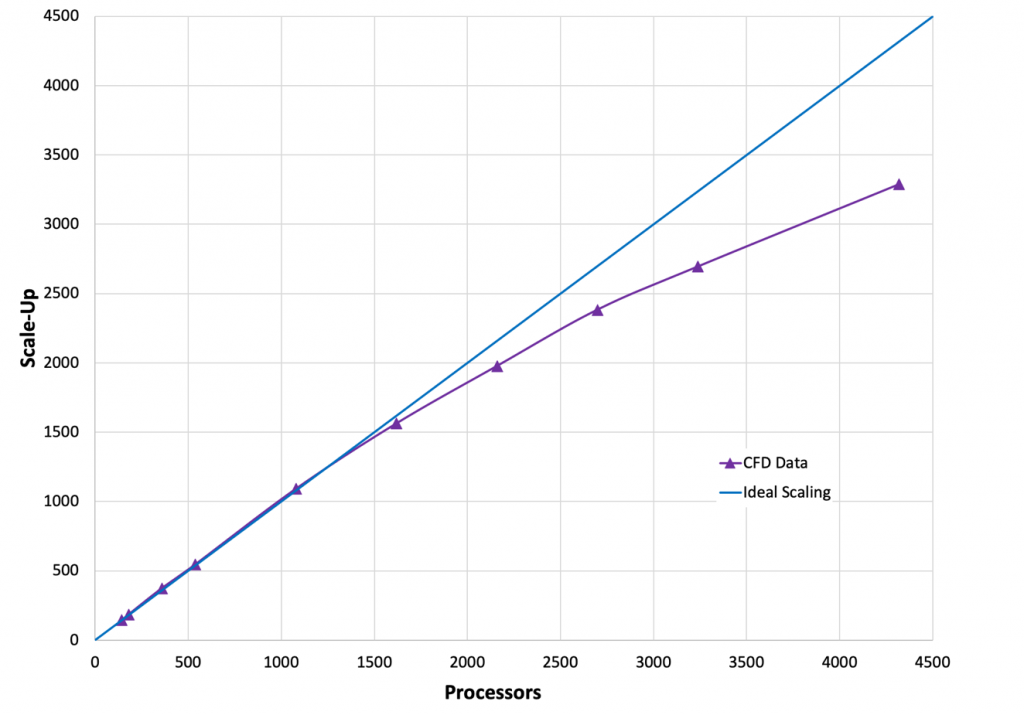AWS Compute Blog
Tag: Amazon EC2
EFA-enabled C5n instances to scale Simcenter STAR-CCM+
This post was contributed by Dnyanesh Digraskar, Senior Partner SA, High Performance Computing; Linda Hedges, Principal SA, High Performance Computing In this blog, we define and demonstrate the scalability metrics for a typical real-world application using Computational Fluid Dynamics (CFD) software from Siemens, Simcenter STAR-CCM+, running on a High Performance Computing (HPC) cluster on Amazon […]
Must-know best practices for Amazon EBS encryption
This blog post covers common encryption workflows on Amazon EBS. Examples of these workflows are: setting up permissions policies, creating encrypted EBS volumes, running Amazon EC2 instances, taking snapshots, and sharing your encrypted data using customer-managed CMK. Introduction Amazon Elastic Block Store (Amazon EBS) service provides high-performance block-level storage volumes for Amazon EC2 instances. Customers […]
Executing Ansible playbooks in your Amazon EC2 Image Builder pipeline
This post is contributed by Andrew Pearce – Sr. Systems Dev Engineer, AWS Since launching Amazon EC2 Image Builder, many customers say they want to re-use existing investments in configuration management technologies (such as Ansible, Chef, or Puppet) with Image Builder pipelines. In this blog, I walk through creating a document that can execute an Ansible […]
Introducing Instance Refresh for EC2 Auto Scaling
This post is contributed to by: Ran Sheinberg – Principal EC2 Spot SA, and Isaac Vallhonrat – Sr. EC2 Spot Specialist SA Today, we are launching Instance Refresh. This is a new feature in EC2 Auto Scaling that enables automatic deployments of instances in Auto Scaling Groups (ASGs), in order to release new application versions or make […]
10 things you can do today to reduce AWS costs
This post is contributed by Shankar Ramachandran, SA Specialist, Cost Optimization Introduction AWS’s breadth of services and pricing options offer the flexibility to effectively manage your costs, and still keep the performance and capacity per your business requirement. While the fundamental process of cost optimization on AWS remains the same – monitor your AWS costs and usage, […]
Running ANSYS Fluent on Amazon EC2 C5n with Elastic Fabric Adapter (EFA)
Written by: Nicola Venuti, HPC Specialist Solutions Architect In July 2019 I published: “Best Practices for Running Ansys Fluent Using AWS ParallelCluster.” The first post demonstrated how to launch ANSYS Fluent on AWS using AWS ParallelCluster. In this blog, I discuss a new AWS service: the Elastic Fabric Adapter (EFA). I also walk you through an example that […]
Running Cost-effective queue workers with Amazon SQS and Amazon EC2 Spot Instances
This post is contributed by Ran Sheinberg | Sr. Solutions Architect, EC2 Spot & Chad Schmutzer | Principal Developer Advocate, EC2 Spot | Twitter: @schmutze Introduction Amazon Simple Queue Service (SQS) is used by customers to run decoupled workloads in the AWS Cloud as a best practice, in order to increase their applications’ resilience. You […]
Optimizing deep learning on P3 and P3dn with EFA
This post is written by Rashika Kheria, Software Engineer, Purna Sanyal, Senior Solutions Architect, Strategic Account and James Jeun, Sr. Product Manager, and Amr Ragab The Amazon EC2 P3dn.24xlarge instance is the latest addition to the Amazon EC2 P3 instance family, with upgrades to several components. This high-end size of the P3 family allows users to […]
Automating notifications when AMI permissions change
This post is courtesy of Ernes Taljic, Solutions Architect and Sudhanshu Malhotra, Solutions Architect This post demonstrates how to automate alert notifications when users modify the permissions of an Amazon Machine Image (AMI). You can use it as a blueprint for a wide variety of alert notifications by making simple modifications to the events that you […]
Automating your lift-and-shift migration at no cost with CloudEndure Migration
This post is courtesy of Gonen Stein, Head of Product Strategy, CloudEndure Acquired by AWS in January 2019, CloudEndure offers a highly automated migration tool to simplify and expedite rehost (lift-and-shift) migrations. AWS recently announced that CloudEndure Migration is now available to all customers and partners at no charge. Each free CloudEndure Migration license provides 90 […]









